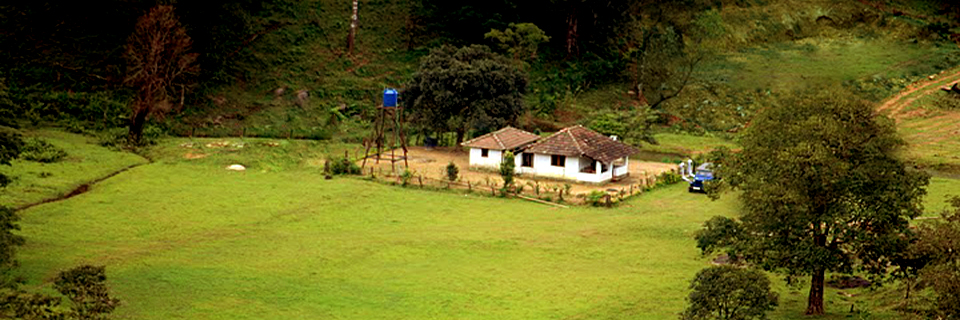| Kodava as Religion and Faith |
ReligionKodavas are an ancient society, origins of which are unknown, who made their homes in the slopes of Western Ghats in the southern part of the state of Karnataka. They are fiercely independent people with a proud martial tradition. Though they form only about 20% of Kodagu, they are the dominant group, synonymous with the region. The customs followed by the Kodavas are strange and different when compared to Hindu customs. Over recent centuries, Hindu culture has influenced the Kodavas immensely but yet they still have maintained their uniqueness. Caste system was unknown to them and they treated the low caste Hindus as equals and did not subscribe to the Brahmanical dominance of Hinduism. Their worship, weddings and death ceremonies do not call for a Brahmin priest to preside over them. They are culturally liberal and their women are allowed to marry again if widowed or divorced. The Kodavas also dress differently and the men wear tunics similar to some of the Middle Eastern or Eurasian tribes. The women of Kodagu are known for their beauty and men are ruggedly handsome. They have their own language, without a script, which is thought to be one of the Dravidian languages of South India. Due to its geographical location, the Kodava language is influenced by Kannada, Malayalam and Tulu languages. WorshipKodavas are primarily ancestor worshippers. At their homes they keep an idol of their ancestors to whom they offer prayers and obeisance. It is usually made of clay or wood or covered with sheet metal, and housed in a shrine (kaimada) built near the entrance to the ain-mane. The founder of each okka, the Karanava, is worshipped by the members of each okka. Sometimes it is simply kept on a platform under a sap-exuding tree near the entrance of ain-mane. Some okkas conduct a karana kola, a dance of the ancestral spirit during which a Malayalee migrant dresses in elaborate colorful clothing and dances in a trance and acts as an oracle. During this ceremony he is symbolically possessed by the karanava, the original founder of the particular okka. In every home a lamp called Nellakki Bolucha is lit in honor of the Guru Karana. The lamp in the central hall is lit by the embers of the kitchen hearth every day. Kodavas were also nature worshippers revering sun, moon, earth and fire. Fire of the kitchen hearth is especially sacred. Kodavas did not have allegiance to Hindu gods, though more recently Hinduism has influenced them enough that they visit Hindu temples. The influence is more gradual as more and more people came in contact with Hindus of Kerala and Dakshina Kannada. Thus Bhagavathi and Chaundi (Chamundi) became recognized goddesses. Mother Kaveri is their Goddess figure and the festival of Kaveris birth, Tula Sankramana attracts Hindus from neighboring districts and states to bathe in the sacred river. This custom surely is a later addition to Kodava custom as the concept is purely Aryan in its proceedings. Another goddess, Pannangalatamme is the patron goddess of the original inhabitants of Kodagu. She has a number of brothers as gods; chief among them is the Shaivite Igguthappa who controls the monsoon rains and coffee bean showers. His brothers are Pemmaiah, Thambipan, Paloorappa and Thirunalli. Some of these brothers are Vaishnavite gods, a clear indication of Aryan Hindu influence on this mountain community. Today all the gods of Hindu pantheon are recognized by Kodavas and they are fully integrated into Hindu society. Due to their martial traditions Kodavas consider themselves as Kshatriyas. |













 Religion & Faith
Religion & Faith


